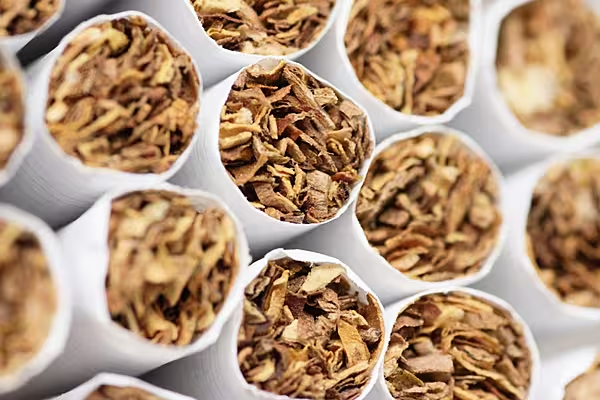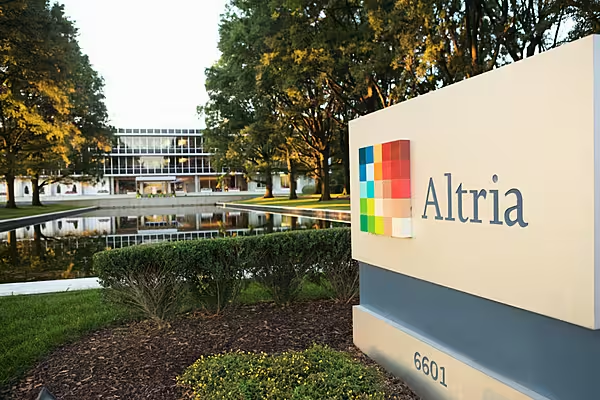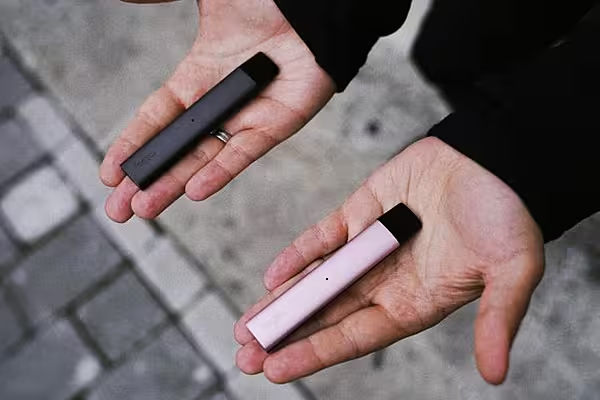British American Tobacco Plc offered to pay $47 billion for the 58 percent of Reynolds American Inc. that it doesn’t already own, seeking to create the world’s largest publicly traded cigarette maker by pooling brands including Lucky Strike and Camel.
The cash-and-stock proposal values each Reynolds share at $56.50, London-based BAT said Friday, a 20 percent premium to the last closing price. The U.K. company said it hasn’t held prior negotiations with the board of Reynolds and will only pursue the deal with its support. Reynolds said its board will respond after evaluating the offer.
The acquisition would be the biggest by a U.K. company since the nation voted in a June 23 referendum to leave the European Union. The move ramps up acquisition activity in a fast-consolidating industry, where companies are also battling to develop the best alternatives to traditional cigarettes to compensate for declining smoking rates in the developed world.
“The timing is a surprise, but the strategic rationale makes perfect sense, pivoting BAT further towards the high-value U.S. market, consolidating some strong brands and Reynolds’s position in next generation tobacco,” Guy Ellison, head of U.K. equities at Investec Wealth & Investment, said by e-mail. “The ball is now in the court of Reynolds’ board and shareholders.”
BAT rose as much as 4.2 percent to 5,003 pence in London trading, boosting the company’s market value to 93.3 billion pounds ($114 billion). Reynolds shares rose 17 percent to $55.20 before U.S. exchanges opened, valuing the company at $78.7 billion.
World’s Largest
About 57 percent of the proposed offer comprises BAT shares, which have risen about 15 percent since the U.K.’s Brexit vote. That helps offset the increased expense of the cash portion of the deal caused by the drop in the value of sterling since the country’s decision to leave the EU. BAT gets the vast majority of its revenue in currencies other than the pound, so its international sales are now worth more when converted into sterling.
The planned combination would likely overtake Philip Morris International Inc. as the world’s largest publicly traded tobacco company. The biggest overall is China National Tobacco Corp., run by China’s State Tobacco Monopoly Administration, which has a market share about the size of BAT and Marlboro maker Philip Morris combined, according to a report from the Brookings Institution.
BAT has been at the forefront of industry consolidation, last year spending about $2.4 billion on a buyout of its Brazilian Souza Cruz SA unit and previously part-funding Reynolds’s takeover of Lorillard Inc. to maintain its 42 percent stake in the maker of the Camel brand.
‘Simply Scale’
“In strategy terms, the key is simply scale,” said Berenberg analyst Jonathan Leinster. “Reynolds American and BAT have a technology agreement and cooperate on many issues so this is largely about taking control of a significant share of the world’s largest profit pool.” The combined entity would generate 40 percent of its profits from the U.S., he said.
The proposed merger “is the logical progression in our relationship and offers all shareholders a stake in a stronger, truly global tobacco and next generation products company,” BAT Chief Executive Officer Nicandro Durante said in a statement.
BAT, which has held a stake in Reynolds since the U.S. company’s creation in 2004, estimates that the transaction would generate “relatively modest” cost synergies of about $400 million.
Including net debt, the bid values Reynolds at 16.3 times earnings before interest, tax, depreciation and amortization, BAT said. Buyers of tobacco companies over the past decade paid a multiple of 13.4 times profit, on average, according to data compiled by Bloomberg.
BAT’s Durante wrote in a letter to the Reynolds board that he would have preferred to propose the takeover confidentially, but because BAT is a significant existing shareholder of the target, U.S. securities law requires that the bidder immediately amend its regulatory filings to show it has made the proposal.
A governance agreement between the two companies requires backing from the Reynolds directors who weren’t appointed by BAT, he said. The bid comes two days after Reynolds named Debra Crew to succeed Susan Cameron as CEO next year. Cameron led the $25.9 billion acquisition of Lorillard, owner of the Newport menthol brand.
‘Good Time’
Under the terms of the proposal, Reynolds investors would get $24.13 in cash and 0.5502 BAT shares for each share. The cash component would be financed by a combination of existing cash resources, new bank credit lines and new bonds.
“It’s a good time for BAT to be taking on that debt with interest rates so low,” Duncan Fox, an analyst at Bloomberg Intelligence, said by phone. “Given their cash generation, BAT can do this deal fairly comfortably.”
BAT said it expects the transaction to add to earnings in the first full year after completion.
Centerview Partners, Deutsche Bank AG and UBS Group AG are BAT’s financial advisers, while Cravath, Swaine & Moore LLP and Herbert Smith Freehills LLP are dealing with legal matters.
Separately, BAT reported a 6.2 percent increase in organic revenue for the first nine months of the year, with growth showing little change from the 6 percent pace of the opening half.
News by Bloomberg, edited by ESM. To subscribe to ESM: The European Supermarket Magazine, click here.














